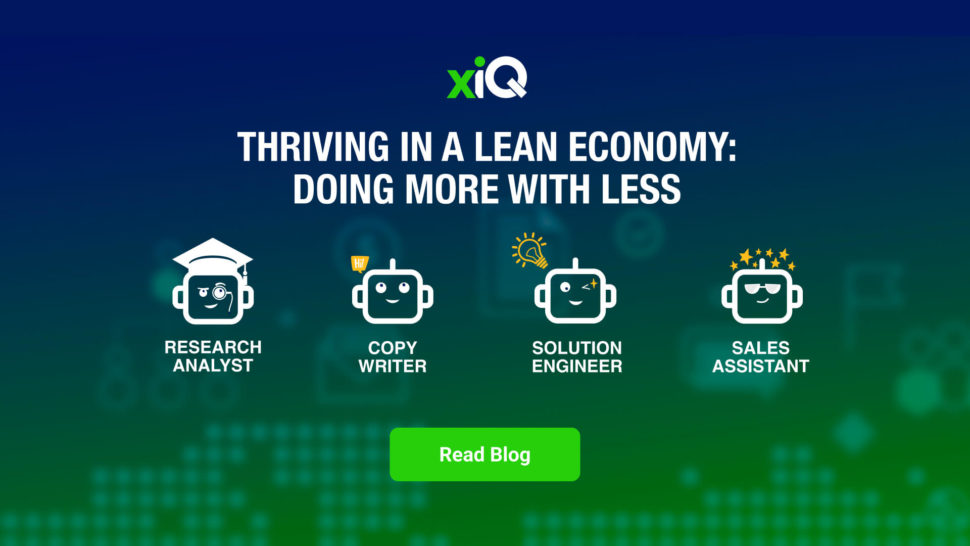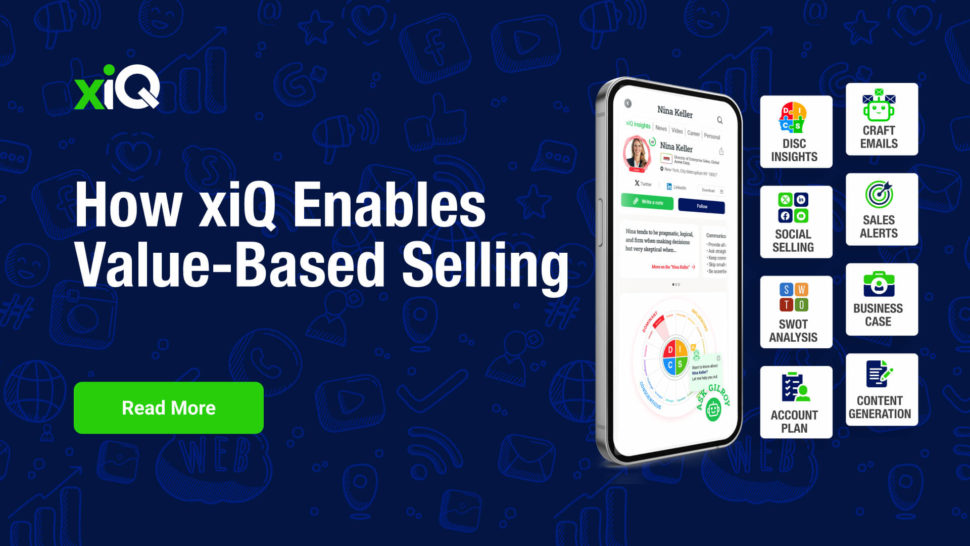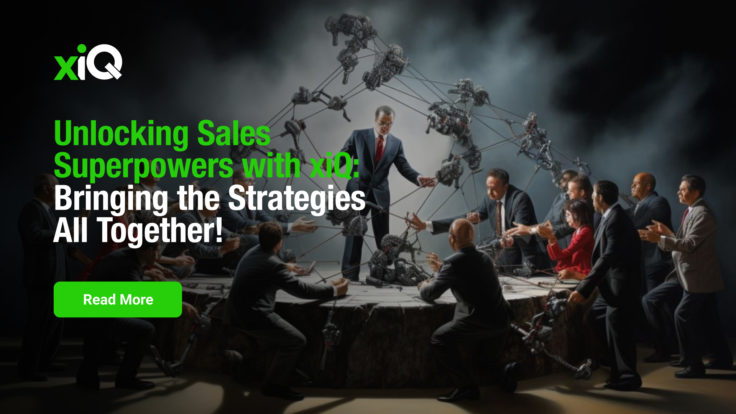What Is Personality-driven Marketing?
Personality-driven marketing is an innovative approach in the B2B landscape that involves understanding and catering to each individual’s unique behavior, psychological traits, and preferences by leveraging AI, psychology, and neuroscience.
It enables B2B sales and marketing reps to understand buyers’ behavior through the lens of their unique worldview rather than their own. They can then carve out an individualized B2B sales strategy and engage with the buyer in a meaningful way
Understanding the Importance of Personality-driven Marketing for Next Generation B2B Sales
The B2B sales and marketing landscape has evolved into a remote and virtual one in the past two years. The reason for this shift is that an overwhelming number of Americans are working remotely. According to The Survey of Business Uncertainty, “about 36.2 million Americans are estimated to be working remotely by 2025 and that represents a staggering 87% increase from the number of remote workers prior to the pandemic.”
Previously, sales and marketing experts had to organize posh in-person dinners for industry leaders and buyers to garner their interest and forge trusted relationships with them. But the current scenario presents a new challenge for them as they have to build new relationships from ground zero. It requires enterprises to spend a huge amount of time and money on quality buyer-related research.
Personality-driven marketing provides a unique solution to this new situation by enabling marketers to understand the mindset of the buyer through real-time, intelligent personality-related insights. Marketers and sales reps can then change the creative, the messaging, and indeed the entire sales pitch to resonate with individuals based on how they see the world.
Beyond traditional personalization based on demographics-based personas, or consumer self-expressed desires, this new approach empowers marketers to interpret basic human drives to match issue messaging with personality traits, thus redefining B2B marketing. Personality insights and other aspects of behavioral science offer opportunities to better connect with individuals and create an excellent match for products, services, or experiences.
The Science Behind Personality-driven Marketing
The American Psychological Association gives the following definition of personality, “individual differences in distinctive patterns of thinking, feeling, and behaving.” Scientists have established this fact for centuries that humans have a unique blend of characteristics that govern both their worldviews and actions.
But only around 30 years ago, psychologists reached a consensus on the present and widely recognized perspective of personality science. They managed to condense hundreds and thousands of personality descriptions into four or five distinct personality traits, each with its supporting data.
Psychologists suggested that each individual can be mapped to a sliding scale from low to high on a range of factors. They performed personality-related experiments on millions of people and managed to achieve a high degree of consistency and accuracy throughout the world. The following are some examples of psychometrics and behavioral assessment techniques that they came up with:
DISC Personality Mapping
William Moulton Marston came up with this theory. It incorporates four different personality traits – Dominance (D), Influence (I), Steadiness (S), and Conscientiousness (C). Industrial psychologist Walter Vernon Clarke then developed this theory into a behavioral assessment tool, Big Five personality traits, also known as the five-factor model (FFM) and the OCEAN model, which stands for O = Openness to experience, C = Conscientiousness, E = Extraversion, A = Agreeableness and N = Neuroticism (also called “Emotional stability”).
Herrmann Brain Dominance Instrument (HBDI) Personality Mapping
William Hermann developed this system while leading management education at General Electric’s Crotonville facility. This was one of the first models to explain why people’s behaviors and personality types might be so different.
He illustrated via this system that each person’ brain has four quadrants and each one is characterized by a particular thinking or learning manner. These include analytical, sequential, interpersonal, and imaginative thinking patterns. He proposed that people are dominant in any one of these areas which signifies their behavior and personality type.
Keirsey Temperament Sorter (KTS) Personality Mapping
David Keirsey, an American psychologist developed this self-assessed personality questionnaire. It categorizes people into four personality types: Artisan, Guardian, Idealist, and Rational. These four personality types are further subdivided into four types each, resulting in 16 personality types.
These personality types enable individuals to better understand themselves and what difference they can make to improve themselves. It has become highly popular worldwide because of its quick and easy accessibility. It is available in 18 different languages across 170 countries.
The Myers–Briggs Type Indicator (MBTI) Personality Mapping
The Myers–Briggs Type Indicator (MBTI) is an introspective self-report questionnaire indicating differing psychological preferences in how people perceive the world and make decisions. The test attempts to assign four categories: introversion or extraversion, sensing or intuition, thinking or feeling, judging or perceiving. One letter from each category is taken to produce a four-letter test result, such as "INTJ" or "ESFP".
The original versions of the MBTI were constructed by two Americans, Katharine Cook Briggs and her daughter Isabel Briggs Myers. Briggs began her research into personality in 1917. Briggs embarked on a project of reading biographies, and subsequently developed a typology wherein she proposed four temperaments: meditative (or thoughtful), spontaneous, executive, and social.
After the English translation of Carl Jung's book Psychological Types was published in 1923 (first published in German in 1921), Briggs recognized that Jung's theory was similar to, but went far beyond, her own.
Digital Psychometrics Changed the Game
In line with the various techniques that psychologists developed, digital psychometrics emerged as one of the unique methods to gain personality-related insights. Previously, scientists used to opt for questionnaires to understand people’s behavior and thought processes. However, as people could lie on these questionnaires, this raised suspicions about the authenticity of this evaluation method. Digital psychometrics enabled scientists to build personality forecasts by leveraging their digital footprints.
Commercial attempts to understand personalities from people's digital footprints are rapidly growing, despite the fact that they are still in their infancy. IBM's Watson Personality Insights, for example, gathers and analyzes huge amounts of user data through natural language processing. This, in turn, helps scientists know about the behavior, worldviews, and preferences in detail.
For sales and marketing reps, the value-driving factor of using personality research is how they can engage individuals based on their personality traits and predict their behavior while making critical decisions. Personality science enables marketers to empathize with buyers and develop a message, campaign, or sales pitch that is more likely to resonate with them.
Why Personality-driven Marketing Works
According to a report published by Salesforce, “97% of marketers witnessed a rise in business outcomes as a result of personalization.” The market evidence is consistent and clear: marketers can increase the effectiveness of their messages and other types of persuasive communication by tailoring them to each buyer’s psychological insights and preferences. According to Instapage, “88% of the US marketers have seen measurable improvements due to personalization, with more than half reporting a lift greater than 10%.”
Since each buyer has a unique perspective and behavior, if marketers can match the tone and framing of the communications or marketing with their personality types and thinking patterns, they can increase the effectiveness of B2B marketing. Creating messaging that resonates with their personality increases chances of engagement and thus sales. It also saves enterprises valuable time and resources doing buyer and account research.
Creating Authentic Engagement Through Personality-driven Marketing
This new approach seems value-driving and promising for sales and marketing experts. But the question arises as to how marketers should get started? The initial step is to comprehend the problem or objective marketers might be attempting to achieve. Is it to better link employees with business goals, modify their behavior, or better identify buyers based on their true motivations (which they can't articulate)?
Next, produce content, campaigns, and bespoke presentations to assist consumers in overcoming specific biases or other decision-making bottlenecks. Once you are confident about a buyer’s specific journey, you can easily call up a certain personality type. You can then combine it with additional information to find out whether there are any links between personality traits and certain actions, preferences, or worldviews.
The “art” of personality-driven marketing — is to craft the messaging, advertising, or content to match different personality types while also considering the stage of the customer journey at which you plan to engage. For example, according to xiQ’s proprietary tool, a dominant captain might prefer articulate reads filled with stats while a conscientious personality type might prefer logical and comprehensive stories. These insights offer marketers the opportunity to create the most effective and empathetic messaging with different groups of customers.
Personality-driven marketing is a fast-emerging approach towards B2B sales and marketing that empowers you to understand the buyers’ mindset and the factors that influence their purchasing decisions. xiQ’s proprietary platform delivers personality insights, comprehensive account intelligence, and real-time, curated content right to your team’s fingertips so they can build trust and close deals faster.
Schedule a call with us today and level up your marketing with bespoke, crisp messaging!






